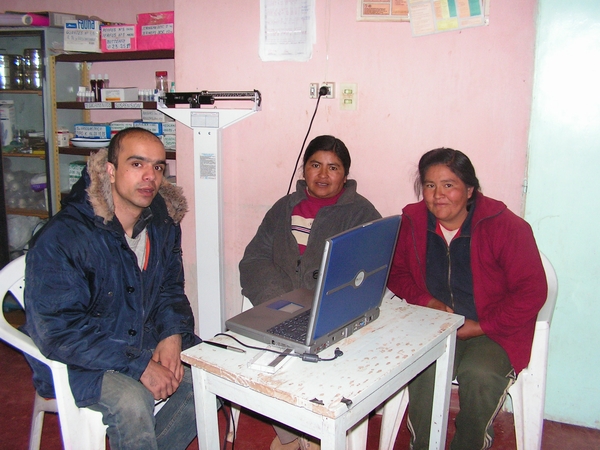Shaping Rural Energy Policy in a Multi-Actor Environment

Versión en español no disponible.
Samir J. Saberi, Master student at the Faculty of Technology, Policy and Management of the Delft University of Technology, is realising his master research project «Shaping Rural Energy Policy in a Multi-Actor Environment», a case study on the social, economical and institutional embedment of an internationally funded renewable energy provision project in rural areas, at the Instituto Nacional de Tecnología y Normalización (INTN) in Paraguay. The research is supported by ESENERG and AES. In the following, read Samir’s article on his research.
One of the main infrastructure services contributing to socio-economic development of rural areas is access to adequate energy services. Rural electrification programmes in less developed and transition economies have in general concentrated on connecting rural villages and remote areas to a national grid.
Here the tendency has been to extend the grid incrementally, where the determining criterion has been economic viability. This means that in areas where the population is dispersed, with in addition little economic activity and poor infrastructure, access to electricity by an extension of the grid is likely to be difficult. Many think that in these areas the installation of decentralized energy generation technologies is sensible, as the cost of these systems is independent of an extensive and expensive transmission and distribution system. Among the decentralised energy generation technologies, renewable energy technologies are – due to their possible contribution to the mitigation of climate change, energy security, the prevention of possible conflicts about natural resources and positive health related impacts – seen by many organizations as an important alternative instrument for solving the problem of access to adequate energy services and simultaneously contributing to sustainable development.
Despite many national and international efforts in the last decades to promote access to adequate energy services by means of – among other technologies – renewable energy technologies, very limited progress has been made to date. Many studies point out that, in order to be successful, the necessary social, economical and institutional conditions for rural energy provision efforts need to be in place and that these are currently lacking in many countries.
Institutions are humanly devised constraints that direct human actions, such as constitutions, (economic) laws and regulations and cultural norms and codes of behaviour. Institutional change comes about within an interaction process of institutions, organisations and the “mental maps” of individual actors. In order to achieve a particular objective, individual actors or organisations might, in their decision-making processes, decide to pursue an alteration of an institutional framework. The alteration of an institutional framework, for example in favour of rural energy provision by means of renewable energy technologies, depends on two fundamental aspects: the ability of the particular actor or organisation to learn that it can do better by changing the institutional framework and the existence of an incentive structure within the institutional framework that facilitates the pursuit of the objective concerned.
Since it is ultimately the interaction process between institutions, organisations and individual actors that settles how and which institutions come into being, it becomes crucial to analyse this interaction process. The intent in the study Shaping Rural Energy Policy in a Multi-Actor Environment is – by analysing the design and implementation process of the project “Energización de Centros Comunitarios Rurales” (which is a multilateral project funded by the Organization of American States – OAS) – is to contribute to an understanding of the functioning of the project. It entails – more specifically – an analysis of the decision-making process and the social, economical and institutional context in which the project is carried out. Based on this analysis an exploration is made of how and to what extent this pilot project has contributed to the creation of an enabling environment for socio-economic development and the utilisation of renewable energy technologies for rural energy provision purposes.
Delft University of Technology, Faculty Technology, Policy and Management (TBM), the Netherlands.
Instituto Nacional de Tecnología y Normalización (INTN), Paraguay
For more information contact Samir J. Saberi, Victorio Oxilia or Wolfgang F. Lutz.
March 2006
